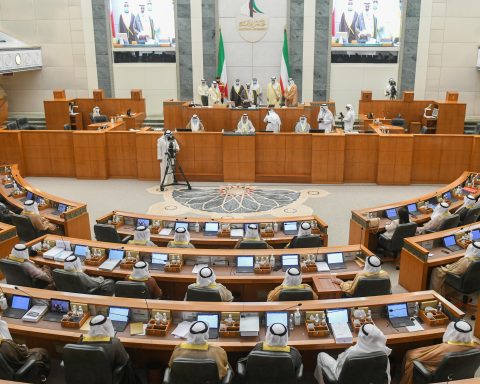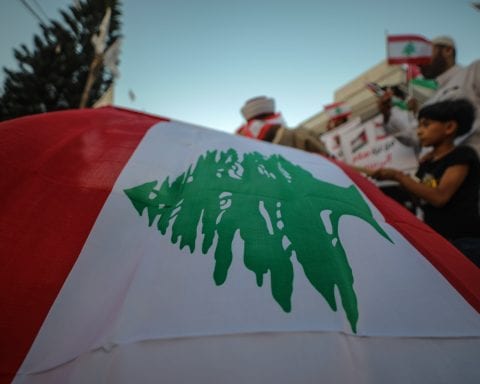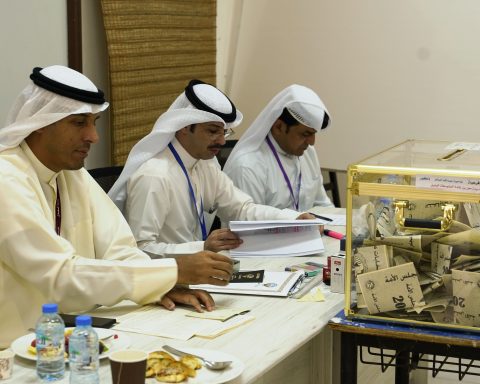Abdennour Toumi: Algeria has gone through pre-legislative elections on June 12, which led to the National Liberation Front (FLN) leading the results of these elections. The FLN is calculated on the variable of continuity and not the break that was a legitimate demand in the peaceful movement of 2019. What are the options of the administration of President Abdelmadjid Tebboune and the political events arising from the new political structure produced by the June 12 elections?
Prof. Yahia Zoubir: The legislative elections are part of the roadmap that the late military strongman, Ahmed Gaïd Salah, had drawn in the summer of 2019, which is merely a few months after the military had forced out Abdelaziz Bouteflika from office in April 2019. The protest movement known as Hirak enticed the military to end the ailing Bouteflika’s twenty-year rule. Despite the removal of Bouteflika and the imprisonment of many, mostly corrupt, members of his entourage, the Hirak has not ended to this date. The leaderless Hirak rejected the roadmap and decided to call for a boycott of the legislative vote. The low participation in the election (officially 23.3%) allowed the FLN to garner 105 seats in the legislature. While the Independents came out second, the old parties which had formed the Presidential Alliance under Bouteflika obtained the third and fourth positions. Naturally, the Hirak, and citizens in general, view this as the continuation of the old regime rather than that of the New Algeria that President Abdelmadjid Tebboune has clamored. In conclusion, most of the elements of the roadmap that began with the December 2019 presidential election, and later triggered the November 2019 referendum on the new Constitution and now the legislative election, have all been rebuked by Algerians.
Abdennour Toumi: What did Algerians and the international community learn from the February 2019 movement?
Prof. Yahia Zoubir: The most important lesson is the fading of fear and the determination to continue the struggle for change, namely democratic freedoms, civil liberties, rule of law, accountability of officials, etc. But it is not clear whether the Hirak has understood that weekly marches by themselves cannot bring about change. This and the infiltration of the Hirak by anti-democratic forces have provided the justification for the authorities to discredit the protest movement and repress it in the hope of terminating it.
Abdennour Toumi: After the election of President Abdelmadjid Tebboune in December 2019, the government of Abdelaziz Jarad was appointed in a consensual manner. How can consensual democracy be in line with the theory of democratic representation to which Algerian voters aspire?
Prof. Yahia Zoubir: This was not consensual democracy but the imposition of a roadmap. If there was a genuine willingness of the government to bring about change, it has failed miserably to do so. The inefficiency, incompetence, and contradictions of the government discredited any claims for change.
Abdennour Toumi: What should the new legislative council and the government that emerges from it do until Algeria emerges from the specter of economic and social crisis and political blockage?
Prof. Yahia Zoubir: It is too early to say, but from civil society’s perspective all this amounts to nothing. Besides, the deputies will be no different from the corrupt ones that dominated the legislature under Bouteflika. One can anticipate that the old parties that had formed the Presidential Alliance under Bouteflika (the FLN, RND and MSP) might do the same, which will totally discredit dishonor the legislature and the Tebboune government.
Abdennour Toumi: What is your perception of the crisis of trust experienced by the political class on the one hand, and the crisis of political identity experienced by classical parties such as the Socialist Forces Front on the other, which called for a boycott of the elections?
Prof. Yahia Zoubir: Some old parties wish to constitute a genuine opposition. But their boycott of the election has allowed the disgraced parties to gain seats in the parliament. So, they will remain a critical voice with little impact on the course of events.
Abdennour Toumi: How do you explain the phenomenon of electoral reluctance in Algeria and the boycott argument of the Democratic Alternative movement, represented by the secular left-wing parties?
Prof. Yahia Zoubir: The secular parties boycotted the election because they believed it was a sham. However, they failed to exert enough pressure on the government because of their limited popular base.
Abdennour Toumi: Does this mean that the electoral law does not necessarily reflect the reality of the political rights enshrined in the 2021 Constitution?
Prof. Yahia Zoubir: Historically, in Algeria, elections do not reflect reality nor what is enshrined in the constitutions, which have been tailored for the incumbent president.
Abdennour Toumi: We hear a lot about the concept of the rule of law. According to the understanding of the said concept in the French and American school of thinking, both of which underline the principles of monitoring the work of the government and separating the authorities and activating the principle of governance in light of economic and social changes to protect the citizen and society in general, can it be democratic without freedom, knowledge and political culture?
Prof. Yahia Zoubir: Although it is one of the pioneers of the African Peer Review Mechanism, Algeria has yet to achieve the level of rule of law that exists in democracies. The country has yet to have an independent judicial system. The anti-corruption campaign that has put many officials in prison, including two prime ministers, two dozen ministers, and high-ranking military officers, may be the beginning of accountability in the government.
Abdennour Toumi: Direct threats have been on the rise against Algeria’s national security in the Sahel region, Tunisia, the eastern and western side of Libya. What is France’s role in the Maghreb and the Sahel in particular?
Prof. Yahia Zoubir: Algeria has been at the forefront of the war on terrorism in the Sahel. Even though it has not sent troops beyond its borders, it has strengthened its own and cooperated with the Sahel states without joining the G5, led by France. It has also strengthened its eastern front by positioning troops in the Algerian-Libyan border as well as sophisticated military equipment. Algeria has also cooperated with Tunisia quite effectively. The problem Algeria faces today comes also from Morocco having normalized relations with Israel and seeking to appropriate the Western Sahara, which Morocco has occupied illegally since 1975. President Donald Trump’s recognition of Morocco’s sovereignty — though irrelevant from a legal point of view — has empowered Morocco, though the new administration of Joe Biden has neither rescinded nor confirmed Trump’s action.
Abdennour Toumi: The Middle East region is experiencing serious security problems like the Palestinian issue file, after the outbreak of the second Al Aqsa Intifada. How do you see these developments soon? What is the fate of the “peace for earth” inverted equation?
Prof. Yahia Zoubir: The recent Israeli attacks on Gaza have shown how precarious the normalization of relations between Israel and some Arab states is. Israel has continued its colonization of Palestinian lands. Morocco, Bahrain, Sudan, and the United Arab Emirates have broken the Arab consensus regarding the “land for peace”. Israel has no interest in such a perspective, preferring to continue its colonization of Palestine while establishing bilateral relations with as many Arab states as it can.
Abdennour Toumi: What is your reading of Turkish politics in North Africa and on the black continent in general? Is Turkey’s striking presence in geostrategic depth worrying regional and international powers?
Prof. Yahia Zoubir: Turkey is an emerging power that has historical ties with North Africa. It has succeeded in renewing relations at the political, economic, and cultural levels. In the eyes of many North Africans, Turkey is a Muslim middle power that has developed successfully. For the incumbent regimes in North Africa, Turkey is an additional alternative, like China, Russia, the Gulf states, to Western powers, which have dominated the region until now. Turkey’s expansion to sub-Saharan Africa is also remarkable. The presence of Turkish Airlines in many African cities is testimony to this growth in the continent.














